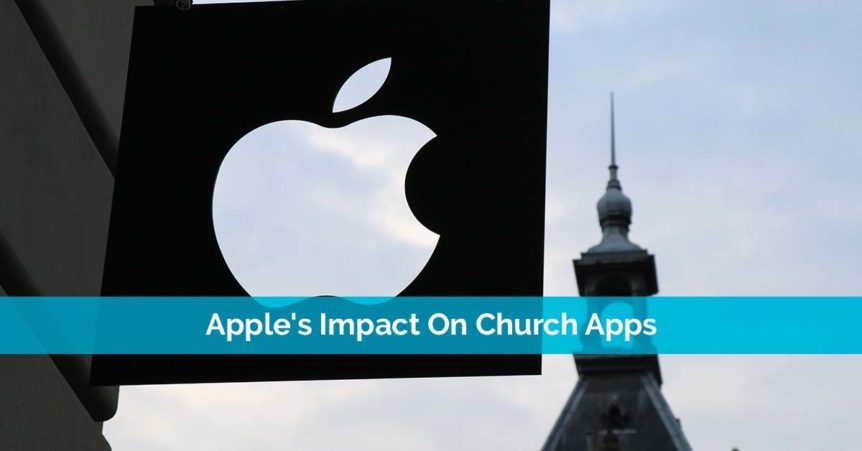Apple is the leader when it comes to apps, so it’s important to take note when it comes to any major guideline changes.
Apple recently updated their App Store Review Guidelines to include changes to the Design section. It’s this area that may affect many church apps.
Despite the changes, this doesn’t mean church apps aren’t going to be allowed in the App Store. However, your church may need to make a few changes to meet the guidelines.
Unique Apps
Apple doesn’t allow template or app generation service style apps any longer. Any template apps must be submitted to the App Store by the app content provider. In layman’s terms, your church’s app needs to be unique. Instead of using a template, which may be cheaper, create a custom app that better fits your church’s needs. In most cases, your members will probably like it better and you’ll enjoy improved functionality.
It’s also important to note that Apple will also reject copycat apps. If you take a look at some church apps, they look identical except for the church details. This is another reason to create a completely custom app. You can get ideas from popular apps from other churches, but make certain yours is different.
You’re still able to use container apps that allow members to choose their church from a list of churches. However, the container app must save the choice and not require users to pick their church each time they open the app.
Make It Useful
An app shouldn’t just be a static page with your service hours and location. In order for Apple to approve or keep your church’s app in the App Store, it needs to be useful. This actually works in your favor. For members and even non-members to really use your app, they need features such as:
- Viewing or listening to sermons and/or podcasts
- Having a daily message or scripture
- Calendar of events
- Online giving
- Social media tie-in
- Ways to interact with other members (such as a messaging function)
Of course, the more useful your app, the more popular it’ll be. Apple recommends that your app be something at least slightly different than your website. Having a “repackaged website” as your app could get it rejected.
Work Solo
For church apps that require an additional app to work, Apple’s new guidelines could pose a problem. Apple wants all apps to work completely on their own. For instance, if your church’s app includes videos, but requires users to open those videos in the YouTube app, you could have a problem. Instead, incorporate a way for users to view videos within your app.
Along those same lines, Apple doesn’t want apps that are just a collection of links or aggregated content. When your app just links out to other sites, users might not find it as useful. It’s fine to link, but try to summarize content or if you do link, ensure it opens within your app.
Apple’s Changes Benefit Churches
While Apple’s changes might require your church to make some changes to your current app, the changes actually benefit churches overall. Sadly, many church apps in the App Store are scam apps. Plus, some churches that aren’t really interested in maintaining an app just clog up the results.
With stricter guidelines in place, it’s much more difficult for scam and useless apps to take over. Now, when users search for a church app, they’ll find far more useful and legitimate apps. This also means users will be more engaged. For those who are just starting to engage with their faith and church in general, this is a win.
Having access to better church apps could lead to more overall engagement with churches. Even if your specific church doesn’t see an increase, every person who connects with God as a result of this change is a win for your church and all other churches.
Looking for other ways to help people find your church? Discover how search engine marketing helps grow your church.




